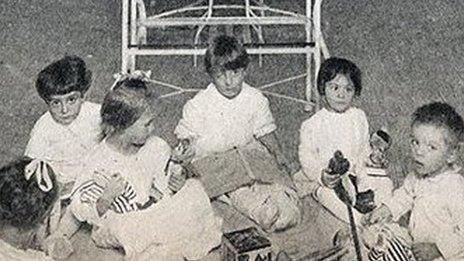Pakistan polio: Seven killed in anti-vaccination attack
- Published
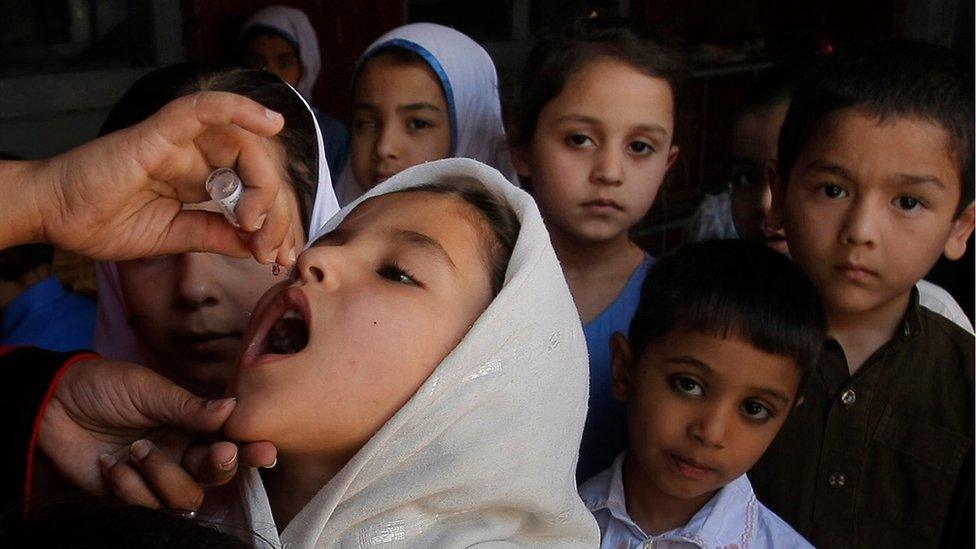
Pakistan is one of only two countries where polio remains endemic
Seven Pakistani policemen, three of whom were guarding polio workers, have been killed in Karachi, officials say.
Eight gunmen on motorcycles fired at a group of three police guards and later at a van containing four officers, officials told the Pakistan Tribune.
Islamist militants oppose vaccination, saying it is a Western conspiracy to sterilise Pakistani children.
In January, 15 people were killed in a bomb attack on a vaccination centre in the south-western city of Quetta.
Reward
Polio workers called off the vaccination drive in Karachi following the attack, despite the home minister's order to continue, the Tribune reported.
According to Pakistan's Dawn newspaper, police have offered a reward of 5 million rupees (£33,000) for information on the killers, and 2 million rupees (£13,000) compensation to the victims' families.
Talking to reporters at the scene, Sindh police Inspector General AD Khawaja said polio drops would be "administered to our children at all costs" and said security for polio teams would be increased.
Pakistan is one of only two countries, along with Afghanistan, where polio remains endemic. Militants have repeatedly targeted vaccination programmes, killing nearly 80 people since December 2012.
The country recorded more than 300 polio cases in 2014 - its highest number since 1999.
Most of the new infections were in north-west Pakistan, where militants regularly target roving health teams, and health officials blamed the rise in cases on several deadly attacks on police workers that year.
The number of cases fell to just 52 in 2015, largely because vaccination teams could reach areas that were previously off limits because of militancy.
Bloody struggle to cure polio
February 2015: Four kidnapped polio workers found dead near Quetta
January 2015: 15 killed by suicide bombing near a polio centre in Quetta
November 2014: Four killed in Quetta
December 2012: Five killed, four in Karachi, one in Peshawar
Polio around the world
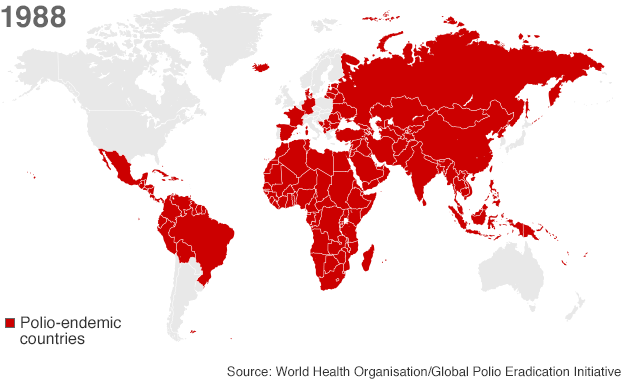
By 1988, polio had disappeared from the US, UK, Australia and much of Europe but remained prevalent in more than 125 countries. The same year, the World Health Assembly adopted a resolution to eradicate the disease completely by the year 2000.
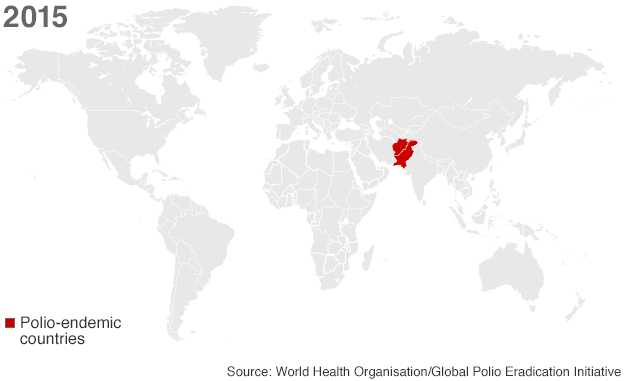
In 2015, polio was endemic in only two countries - Pakistan and Afghanistan. No new cases were reported in Africa.
What is polio?
Polio (poliomyelitis) is a highly infectious disease caused by a virus which invades the nervous system. It mainly affects children aged under five.
Symptoms include fever, fatigue, headache, vomiting, stiffness in the neck and limb pain.
One in 200 infections leads to irreversible paralysis, and between 5-10% of those who suffer paralysis die because their breathing muscles are immobilised.
Cases have fallen dramatically since polio eradication programmes were introduced; from 350,000 globally in 1988 to around 70 in 2015.
Polio remains endemic in Afghanistan and Pakistan, but Nigeria was removed from the list in October after a year with no new cases.
- Published18 January 2015
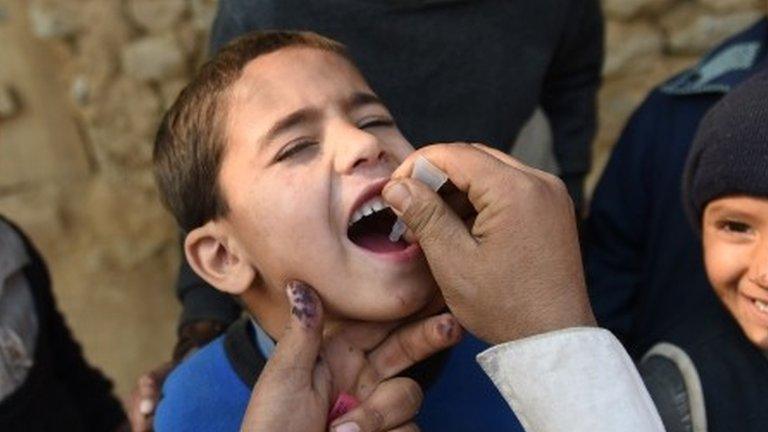
- Published27 May 2014
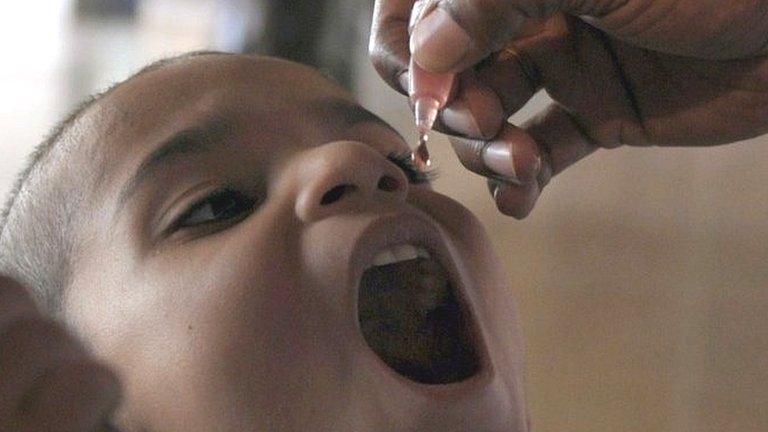
- Published3 June 2015
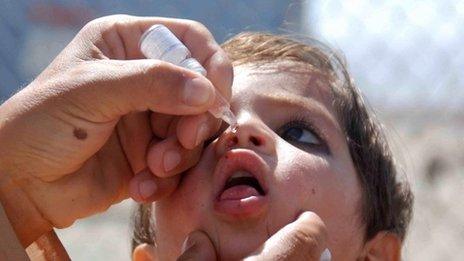
- Published20 December 2012
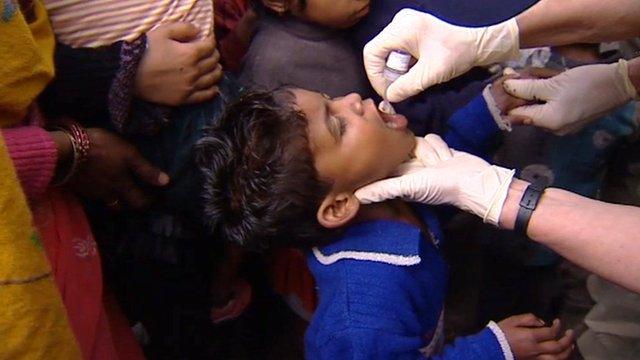
- Published25 September 2015
- Published25 September 2015
